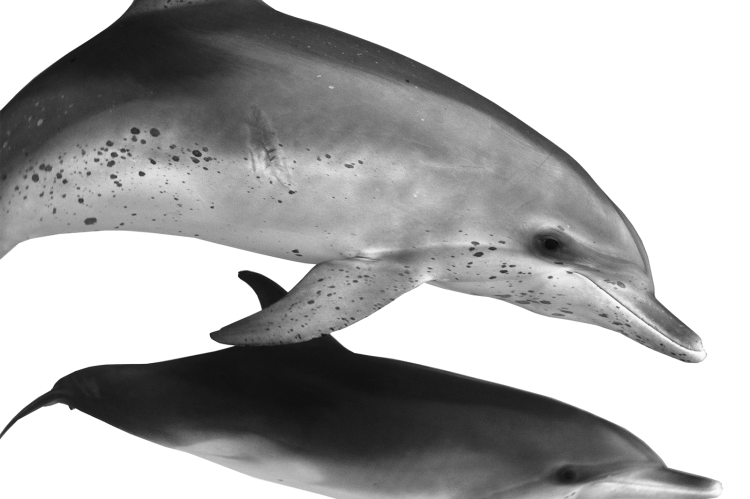Dolphin swim eases clinical depression
Symptoms of mild to moderate depression can be alleviated by swimming with dolphins according to researchers of a study published in British Medical Journal. It was found that two weeks of treatment instead of four weeks was required for effective psychotherapy or drug therapy.
Two groups of outpatients, one which swam one hour daily with dolphins and the control group which did not, were studied by scientists of the Department of Health Sciences, Division of Clinical Psychiatry, University of Leicester Medical School, Leicester General Hospital in Leicester, England.
It is thought that the echolocation system of the dolphins as well as their aesthetic value and the emotions raised in humans during interaction may explain the healing effects of the dolphin swim program. The researchers work supports a concept connecting experiences with nature to improvement in human health and wellbeing. Restoring health through contact with nature has been given the name, ‘ecotherapy’.
Lasting improvement
Patients in the study swam with dolphins at the Roatan Institute of Marine Sciences in Honduras over a two week period. Four weeks before they participated in the study, the patients with mild to moderate depression discontinued anti-depressant drugs or psychotherapy. Three months after the end of the study, patients in both experimental and control groups reported lasting improvement and did not need further treatment.
The ramifications of the study suggest that drugs may not be necessary when patients receive biophillic treatment with animals according to the researchers Christian Antoniolli and Michael Reveley, experts in psychiatry.
Biophillic treatment is based on the notion developed by psychologist Erich Fromm that cultivating the capacity for love underlies human emotional wellbeing and mental health.
According to reports, opponents of dolphin swim programs cite an explosive out of control growth of these programs for tourism, abuse of the dolphins in confinement, mistreatment during capture, and that dolphin behaviour is compromised in captivity.
But dolphin swim operators say their programs help educate the public about the need to protect dolphins in the wild, say local reports.


